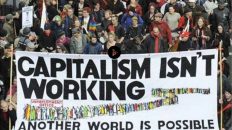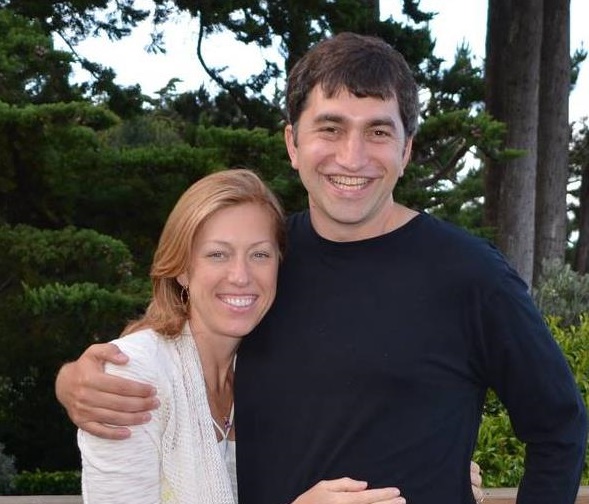The technological revolution that is taking place is threatening us with a unique phenomenon.
When robots and artificial-intelligence empowered machines pass the touring test, that is we reach a stage where we pick up the phone, you call a restaurant, and you cannot distinguish whether this is a machine speaking to you or a human being. Suddenly, you can imagine the impact this is going to have on employment throughout capitalism. For the first time in the history of capitalism, technology is destroying a lot more jobs than it is creating, so you are going to have a massive reduction in aggregate demand. Income will become even more concentrated in the hands of those who own the machines. But even they will suffer in the long term because the demand would not be there for the product of their machines.
We need to take the returns to capital, the returns to automation, and spread them throughout society. We need a universal basic income but not one funded by taxation. Because if you tax workers so that other workers don’t work and have a right to sit on their couch and watch television whereas others are working for them, it is going to turn one segment of the working class against another. So this is the fundamental distinction. Fund a universal basic dividend not from taxation, but from the returns of capital.
We must overturn the current narrative on life under capitalism. The current narrative is that we have private production of wealth which is then appropriated by the state for social purposes. In reality, our wealth production is collective. It is social and it is only then privately appropriated.
Take an iPhone. Unpick it. Open it. What do you find in it? You find a variety of technologies. Most of the technologies in there were provided by public funding. Every time you search on a search engine, you contribute to the capital of google. Their customers are producing value which is being sold to advertisers for exchange value to be returned directly to these corporations.
So basic income is a very simple way of ensuring that those who produce the value get a larger share of it. If you start thinking of it that way, then it is very easy to start thinking of basic income as a dividend – a dividend that goes to the collective that was responsible for producing the wealth.
The struggle we are going to have to carry hearts and minds will be an ethical one from those whose own sense of dignity responds against the idea of “something for nothing.”
We have to attack the narrative head-on. Basic income is about giving money to the undeserving. It is about giving money to the rich. It is about giving money to the surfers, the beach bums, the ones that we dislike. We must not be sidetracked simply by talking about good people getting money that they deserve. We should talk about undeserving people that get money courtesy of the fact that they are members of a society that is collectively producing wealth.
We will have to choose democratically and politically between a world in which the concentration of ownership over the newfound means of production is going to lead to a stagnating capitalism with intense inequality and a huge quantity of income for a decreasing, shrinking percentage of the population that lives behind barriers and electrified fences in privately policed communities and the rest in a cesspool of volatility, uncertainty, and social misery.
I have very deep belief in the capacity of human minds to work things out for themselves if they don’t have to live in terror.
Social democracy put forth the idea of a social safety net. Nets are good for catching people who are falling, but when you are caught in them it is sometimes very difficult to get out of them, sometimes very easy to be trapped. Think of basic income as a foundation, not a net. A floor on which to stand solidly and to be able to reach for the sky.
















